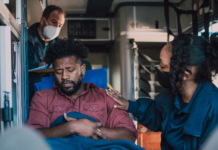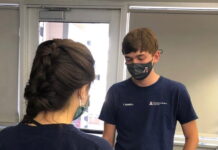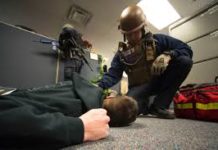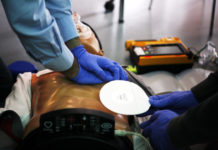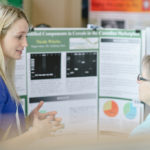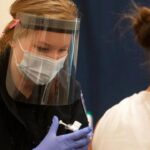
While undergraduate students considering a career in the health professions often have some idea of what it means to be a patient, it is also important for them to gain perspective of what it means to be a healthcare provider. In addition to clarifying one’s career goals, students who serve as EMTs (or non-EMT volunteers) can leverage their experiences to strengthen their candidacy for employment opportunities as well as graduate or professional school.
Healthcare employers and admissions committees seek candidates who display strong interpersonal skills and a genuine concern for others. EMTs must think on their feet as they are called upon to connect with patients during medical and psychological emergencies. For example, one of the students I advised found a shared love of poetry with a patient. Another, found that a few, calm words helped a patient relax as healthcare providers swirled around them. EMTs can share their stories during interviews and in personal statements to demonstrate their character as well as their preparedness for the field of healthcare.
Healthcare employers and admissions committees seek candidates who display strong interpersonal skills and a genuine concern for others…EMTs can share their stories.
Prepared to Serve and Lead
While caring for patients, EMTs work with a team to prioritize medical concerns and to effectively communicate information for treatment and transport. They learn an extensive set of medical protocols and are privy to private health information. EMTs are not only expected to react appropriately while reserving judgment, but are also trusted to keep information confidential, even if they see patients in class or if the patient is a “friend of a friend.” Through long shifts and challenging calls, EMTs learn to handle the stress of juggling multiple responsibilities, persevering (especially during the fatigue of a busy overnight shift), and putting the service of others above self. Taking time to reflect on these experiences will better prepare healthcare and graduate school applicants to respond appropriately to common questions regarding successful instances of time management, collaboration, selflessness, and complete respect for privacy during difficult situations. Beyond showing that they have the passion and abilities to be successful healthcare providers, EMTs may also describe how they made meaningful differences to individuals and their communities. I often find that hospitals, in particular, value EMT experience as they consider candidates for patient care technician, emergency room technician, or patient coordinator positions. EMTs should also take advantage of the various opportunities to interact with other healthcare professionals that are available through service in a college EMS agency. Interacting with the agency’s medical director, receiving hospital staff, or community EMS partners can lead to job prospects, shadowing opportunities, and a more comprehensive view of the healthcare team. Even for students who do not pursue EMS or other healthcare roles, serving as an EMT is a meaningful service opportunity that develops a number of skills that today’s employers and graduate schools seek in their candidates.
Finally, EMTs who serve in leadership roles should outline their experiences managing their agency’s providers and resources – difficult tasks that require initiative, attention to detail, and an ability to communicate with important stakeholders. Students should highlight how advocating for resources to expand EMS agencies requires strong leadership and the ability to navigate complex systems, the same skills needed by health care providers advocating for patients.
While there are several opportunities for students to gain patient care experience, many aren’t compatible with a student’s schedule, nor offer the kind of training that students receive through collegiate EMS. It is a unique opportunity that I am proud to say is offered at my institution and one that I am happy to encourage as I meet with students who are considering careers in the health professions.

